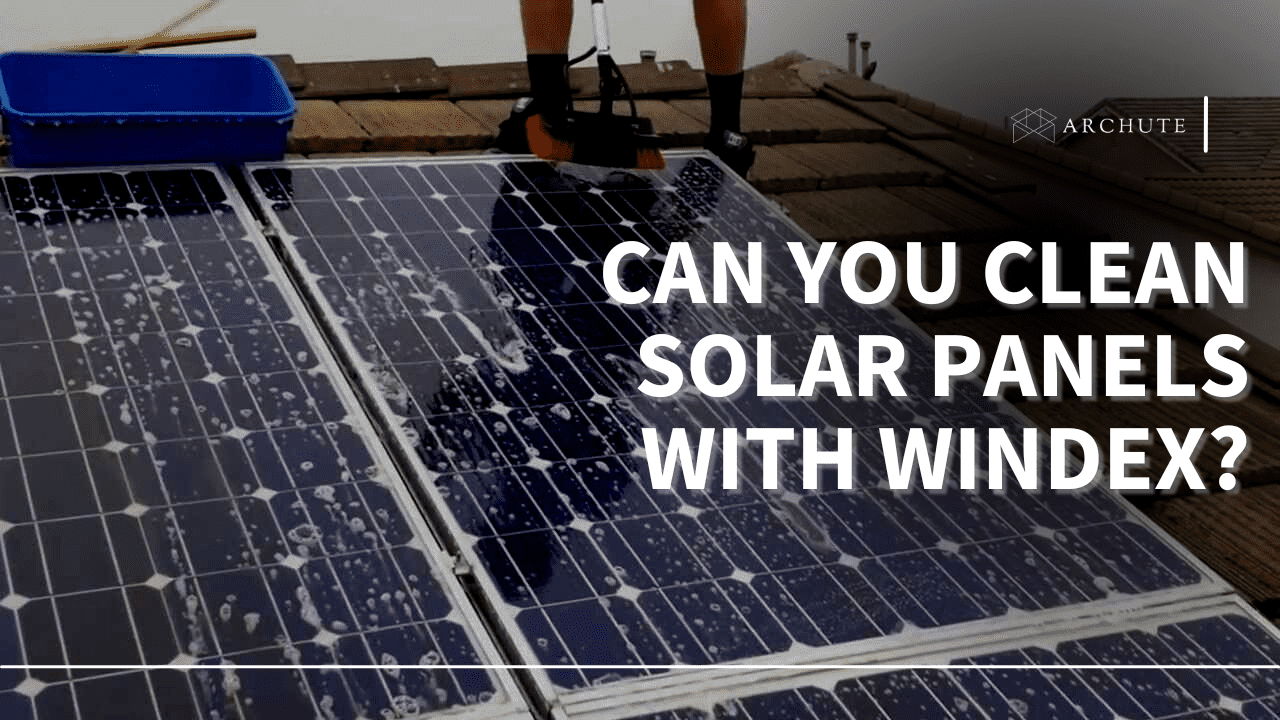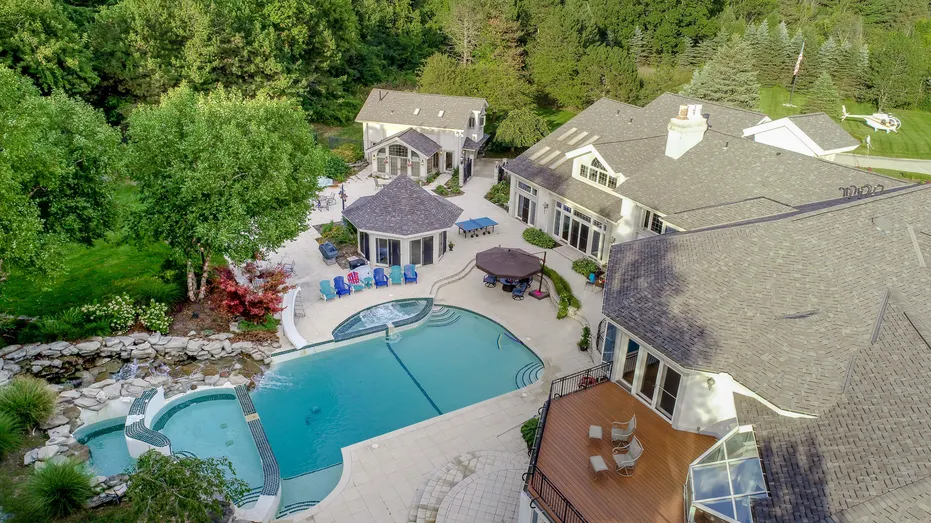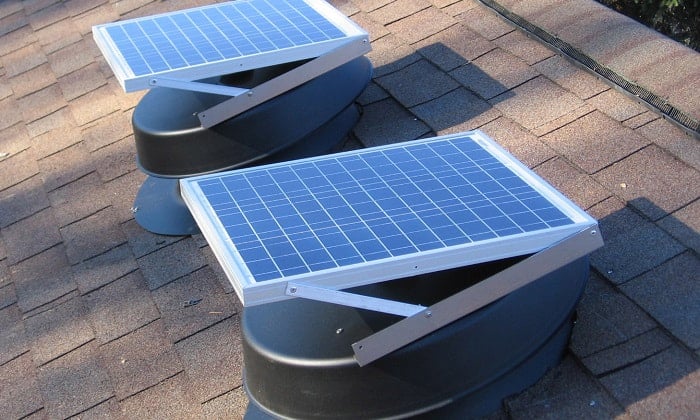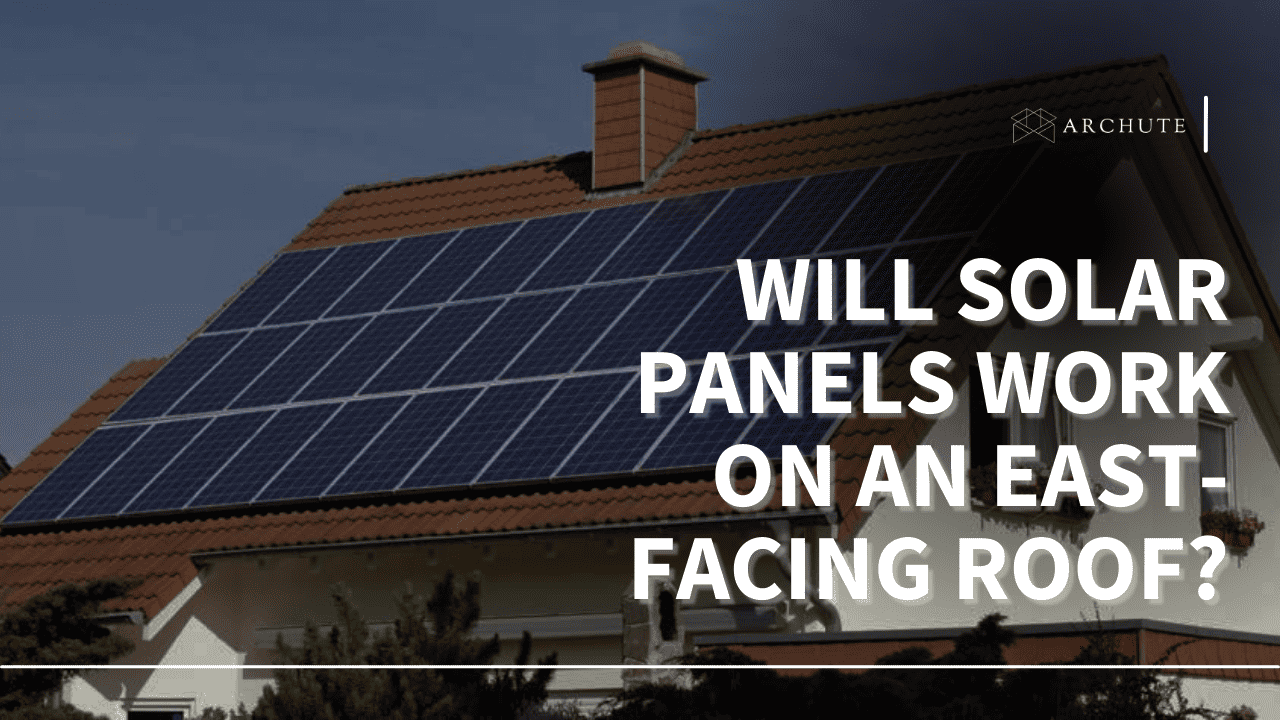Dirty solar panels are less efficient. In addition, dust, grime, and bird droppings can make the photovoltaic cells slower than normal. Therefore, cleaning solar panels at least once in a while is a good idea. But can you clean solar panels with Windex? Follow to find out.
Can you Clean Solar Panels With Windex?
Short answer, yes. However, it is important to know which Windex product to use. You can’t use them when cleaning your solar panels since not all are safe. Despite how fragile solar panels are, cleaning them is easy because they don’t need cleaning often. If you take extra precautions when using Windex, your panels should be fine.
Cleaning solar panels yourself is cheaper than hiring professionals. However, it is a delicate job because panels can only harness solar energy if they are clear. Furthermore, the slightest scratch or damage will need to be replaced. Replacements are not cheap.
Here is how you can safely clean solar panels with Windex.
How to Clean Solar Panels with Windex
Before cleaning your solar panels, consider your safety by switching off the solar system. Ensure other energy connections are also off. A little electrical knowledge would come in handy in this part. If you installed your panels, it should be easy. However, you can always look for your solar panel manual and follow the manufacturer’s instructions on correctly switching it off or even how to install solar panels on a roof.
Step 1

Image source: mysolargoods.com
Using a scalable ladder to ensure you don’t fall, climb to your roof where your solar panels are located. If you are using Windex, attach a Windex hose applicant to make it easier to remove stubborn grime. Additionally, wear gloves to protect your hands from harmful substances and chemical burns. Even if Windex is a common household disinfectant, it is harsh on the skin.
Step 2:
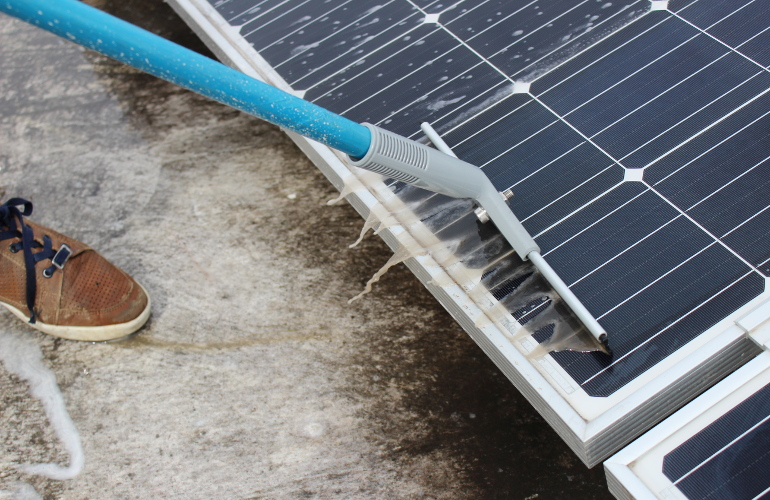
Image source: solarpowerworld.com
On the Windex hose attachment of the spray bottle, change it to the soap setting and apply an even layer of Windex all over the solar panels. Avoid any scrubbing, especially abrasive tool scrubbing. Remember to cover the panel frames in Windex as well. After 15 minutes, all the grime and dirt should be lifted off the solar panels.
Step 3:
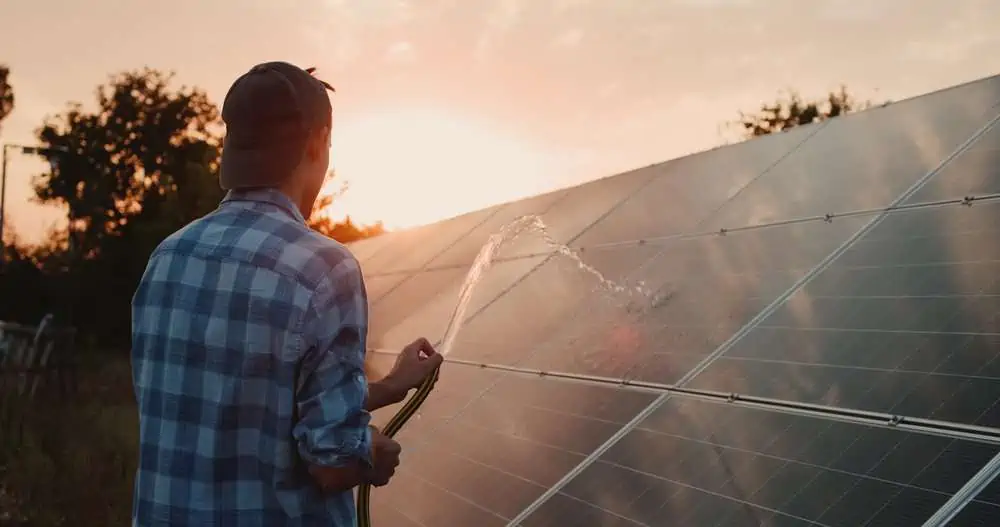
Image source: ohsospotless.com
Using your garden hose, spray down the solar panels. Ensure to reduce the water pressure on your hose or pressure washer. Too much pressure could crack and damage most solar panels. When rinsing the panels, remove all the soap suds; otherwise, they will leave mineral deposits. Mineral deposits can also be left behind by hard water.
You can wipe off the remaining water with a soft, clean rag. Then, let the panels completely dry before turning them on again. Did you know you can install solar panels yourself? With an installation manual, it is achievable.
Why Should I Clean my Solar Panels With Windex?
As an all-purpose cleaner, Windex is one of the best cleaning agents for glass solar panels. It is crucial to note that if you use Windex, it’s unnecessary to use any other cleaning agent. Windex gets the burned-on grime just fine.
Here are the major reasons why using Windex is perfect for your solar panels:
i) Streak-free Appearance

Image source: greenmatch.com
Solar panel cleaning with soap and water tends to leave bubbles and watermarks. Windex contains cleaning chemicals that don’t leave any streaks or residue. Additionally, using soapy water when cleaning glass solar panels could leave a powdery residue when they dry. Furthermore, your solar panels will attract more dust if you use soapy water without giving the panels a thorough rinse.
ii) It’s Cheaper

Image source: n26.com
Companies that offer solar panel cleaning services usually charge a very steep fee. Therefore, it costs less to do it yourself. With some elbow grease and luck, you could clean your solar panels for the foreseeable future. However, it’s also advisable to call professional cleaners or hire an experienced cleaner, due to physical limitations, if it’s too much work.
What Makes Windex Ideal for Solar Panel Cleaning?
There are three cleaning agents in Windex that makes it the perfect agent to clean panels, with no additional cleaning needed. They are:
a) Ammonium Hydroxide
Ammonium hydroxide is also more commonly known as ammonia. It is mixed with other cleaning agents for a seamless cleaning process every time. Ammonium hydroxide has a basic pH and easily removes dust and bird droppings without using a soft cloth.
The concentration of ammonia used in most safe cleaning products isn’t harmful to plants. So you can be comfortable knowing your plants won’t be affected. However, it is important to take personal safety precautions and use gloves.
b) Isopropanolamine
This ingredient works with ammonium hydroxide to target the buildup of soap scum. It doesn’t have an acidic composition. Therefore it also maintains a basic pH while in action to prevent any damage to the anti-reflective coating or solar cells of the panels. Apart from soap, this ingredient also targets other residues caused by hard tap water.
c) 2-Hexoxyethanol
This is the final component of the cleaning agents in Windex. It can also be found in any non-abrasive soap. Its role in Windex, on a molecular level, is to prevent the water in the Windex from combining with dirt. In most cases, it prevents dust from becoming mud. In addition, it has cleaning abilities since it has soapy properties.
What to Avoid When Cleaning With Windex
Here are some things to avoid when cleaning solar panels with Windex:
1) What Materials are in Your Solar Array?
Verifying this information is important before cleaning solar panels with Windex. Some solar panels are made of plastic. Plastic and Windex don’t mix. Therefore, using Windex on plastic solar panels is dangerous because it could create scratches and affect power output and energy production. While replacing a panel is not affordable, there are many advantages of solar energy.
Most solar panels are made with a glass cover. However, you can’t always be sure. Therefore read your manufacturer’s guide to know whether or not you can use Windex to clean your solar panels.
2) Avoid Rough Scrubbers
Even if you use warm water and have the perfect setting on your garden hose, it won’t make a difference if you use abrasive scrubbers like steel wool. A soft sponge or soft cloth is all you need to use with Windex. Windex is a strong cleaning agent on its own. You won’t need to scrub anything off except to spread the Windex around.
Tips for Maintaining your Solar Panels
- Wash your panels in the early morning or late evening to avoid damage. The solar panels get very hot during the day.
- To disinfect your solar panels, mix two cups of deionized water and a little isopropyl alcohol and spray on the panels.
- Use warm water. Using hot or cold water could damage your panels irreparably.
- If you have any stubborn droppings or stuck grime, use a plastic scourer to lift them gently. It’s the best tool for this job.
- Avoid leaning or putting your whole weight on the panels because they are delicate and could crack.
- To avoid last-minute cleaning, use a water hose to spray water on the panels weekly. This will get rid of debris.
FAQ
i) Can solar panels be washed with soap?
Yes. Solar panels can be washed with soapy water and a non-abrasive sponge. A low-pressure washer should also be fine to use.
ii) Do solar panels work better when clean?
Yes, they do. Clean solar panels make it easier for photovoltaic cells to harness solar energy. You have to clean your solar panels if you live in a dry area with dust and smog. In the winter, it’s recommended to use a soft snow brush to remove snow from your panels.
iii) What’s the best thing to use for cleaning solar panels?
Soapy water is the best to use for cleaning solar panels. However, you can also use cleaning agents like Windex. Although, it’s important to note that any cleaning detergent stronger than Windex should not be used on solar panels. They could ruin the electrical components of your solar system.
iv) Does rain clean solar panels?
Yes, rain is an effortless and inexpensive method for cleaning your panels. Even a slight shower will do an excellent job cleaning the dirt, droppings, debris, and grime off your solar panels.
v) Are there alternatives to Windex?
Yes. If you run out of Windex, you can easily substitute it for soapy or plain water. Therefore filling up a bucket with water and a little dish soap should work. You can also hose down the panels with plain water.
The Bottom Line
Besides the occasional cleaning, panels are maintenance-free and a great investment in clean energy. Windex is one of the best cleaning agents if you like to wash your panels. An accumulation of dirt and grime can decrease your panel’s efficiency. It is recommended to clean your panels every 3 months for the best outcome.
Featured image source: youtube.com

